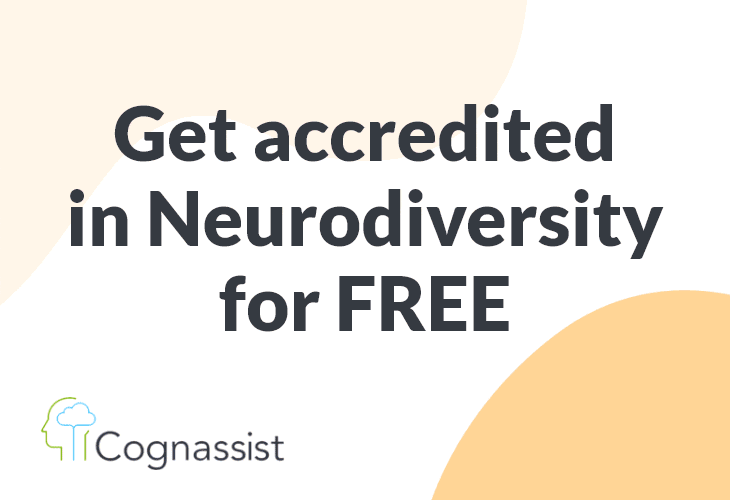How to support neurodiverse learners: #5 Literacy

Literacy doesn’t just refer to our reading or spelling skills. It encompasses everything we perceive about language, including:
- Vocabulary.
- Language processing power and speed.
- Reading fluency and comprehension.
- Spatial perception – listening and speaking.
- Understanding and following instructions.
- Discussing and explaining ideas with clarity.
- Spelling and grammar.
All job roles, coursework and assessment types will have some form of language element. Having an unidentified need in literacy can undoubtedly make learning and employment more challenging.
Difficulties with literacy can cause noticeable behaviours, like:
- Having a more limited vocabulary.
- Being less willing to participate in group conversations.
- Trouble following instructions, especially if they involve technical or obscure terms.
- Glossing over words we don’t know, rather than looking it up to increase our vocabulary.
Our three top tips for supporting a need in literacy
#1 Provide a glossary of terms
Every discipline has its own terminology. To help learners who may struggle with some of the vocabulary used in their programme and facilitate their immersion in the course, it can help to have reference materials like a glossary of terms to improve comprehension.
#2 Support learners in their writing tasks
This can mean setting out clear aims for each task, discussing the aims and listening to the learner’s ideas to encourage their work in the right direction. Individuals who struggle with literacy can get lost when they’re writing, so having these clear aims can help them to have a coherent plan for their writing.
It’s also possible to encourage this with useful tools, like mind mapping software or double-spaced Word templates.
#3 Keep internal emails short and to the point
It can be easy to send an email to a learner or colleague that unintentionally bombards them with written information. Enrolment information or introducing new company policy can be notoriously dense documents.
Giving individuals who struggle with their literacy extra support and time to respond to such information is important. But it also helps to keep the information as concise and accessible as possible.
Dr. Louise Karwowski, Head of Science, Cognassist
So, what’s next?
We’re about to bring you something very exciting. A serialised set of guides on how to identify and support learners with a need in the eight key cognitive domain.
How to support neurodiverse learners: |
We’ll be posting one guide a week, rounding up with a podcast with Dr Louise Karwowski, Head of Science at Cognassist, who will discuss the importance of starting the conversation about neurodiversity with your staff and learners.
If you like the sound of understanding more about neurodiversity, you can register for free for the NCFE endorsed Neurodiversity Masterclass here:
You can also check out the full guide How to support Neurodiverse learners now.


Responses